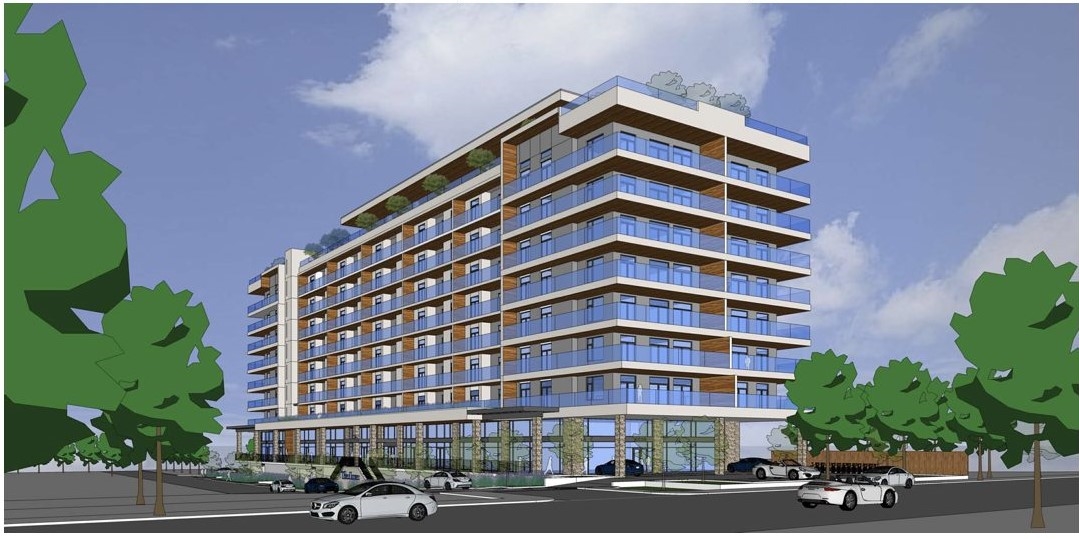
Three pro-housing nonprofits are arguing in support of developers in Los Gatos on Sept. 4 in response to a lawsuit the town filed in March over its interpretation of state housing law.
Lawyers from the California Housing Defense Fund, Californians for Homeownership and Yes In My Back Yard, also known as YIMBY Law, filed an amicus brief at Santa Clara County Superior Court in San Jose.
Related Articles
Redwood City considers 21-story tower to serve older residents
Sale of apartment hub with hundreds of units near East Bay BART stop points to weakening market
How to defend a home from wildfire: UC Berkeley researchers’ lessons from infernos
Is housing the issue Democrats and Republicans in Congress can agree on?
Walters: New California law to make housing projects easier can also make them cost more
“This case is a story of state housing law working as intended to produce new housing while a resentful town tries to gum up the process,” the lawyers wrote in their brief.
The organizations are not parties in the case, but they filed a “friend of the court” brief to offer additional arguments, specialized knowledge, perspective or relevant information the court may want to consider before they rule on the case.
In March, Los Gatos filed a lawsuit for clarification regarding the permit streamlining process for builder’s remedy projects. The town interpreted the law to mean that developers only had one 90-day remedy period to submit missing information and resolve any issues with their applications. However, developers argued that they could have an indefinite number of 90-day periods to do so. The town asserted that the applications for two projects were deemed incomplete; they were The Arya, which would have replaced the Ace Hardware on Los Gatos Boulevard, and The Luxe, a 117-unit mixed-use development that would also be located on Los Gatos Boulevard.
The crux of the amicus brief is that the town knowingly filed for declaratory relief knowing that staff couldn’t reject the applications outright. Instead, the nonprofits said, the town hired lawyers to help them find a way to reject the applications without facing legal consequences. They argue that the town did this to claim “plausible deniability against accusations that it is trying to stop new housing” and to take advantage of a gray area in the housing law while avoiding penalties if the applicants sued Los Gatos first.
The pro-housing organizations also argue that the last three builder’s remedy projects approved in Los Gatos adhered to the law by allowing for numerous cycles of application processing before being deemed complete, contradicting the claims they made in their initial lawsuit.
“The town knows its argument is wrong,” wrote the lawyers in their brief. “The courts and (state Department of Housing and Community Development) confirm the town’s argument is wrong. The town does not care. It has no other way to stop the projects in this case.”
Los Gatos Mayor Matthew Hudes said he did not have a chance to read nonprofits’ amicus brief, adding that the town’s lawsuit is justified and the town is “hoping to get clarity on the conflicting direction that we’re getting from the state of California.”
Hudes said that his biggest concern was that interpreting the housing law to have unlimited extensions essentially ties up a property and other ideal locations in the application process and prevents housing from being built.
“We purposefully selected for housing that’s based on our in-depth analysis of the infrastructure and the ability to support housing on a particular site and transit and water and all those things, and then with an application never becoming complete, it essentially blocks or prevents development from occurring there,” Hudes said.
In an email statement, the town highlighted the 395 housing units that were approved this year, including 155 units at the Los Gatos Lodge, 55 units at the Genuine Automotive site on Los Gatos Boulevard and 185 units at the Meadows. They said they are continuing to process all planning applications pending resolution of this question of statutory interpretation.
“The amici argue that applicants should be able to submit incomplete planning applications over and over, without a deadline for submission of a complete planning application,” stated the town. “The Town’s interpretation of the statute allows ample time for an applicant to submit a complete planning application.”
The lawyers argue in their brief that their opinion is necessary to the case, stating that they had been involved in successful lawsuits that paved the way for housing developers in cities like Beverly Hills, San Mateo and Los Angeles, which gives them the expertise and foresight to see how this case may affect housing cases in other local governments and state housing law as a whole. They also argued that they would have sued Los Gatos under the Housing Accountability Act, but the town effectively rejected the projects without holding a public hearing, preventing them from being able to comment on the issue in the moment.
They also emphasized that Los Gatos’ lawsuit will have an impact on other municipalities that have tried to hinder development applications based on murky interpretations of the Permit Streamlining Act as well as the state housing law as a whole.
“This court’s decision, consequently, has statewide implications,” the brief states. “If it does not reject the town’s tactic, anti-housing jurisdictions across the state will be emboldened.”